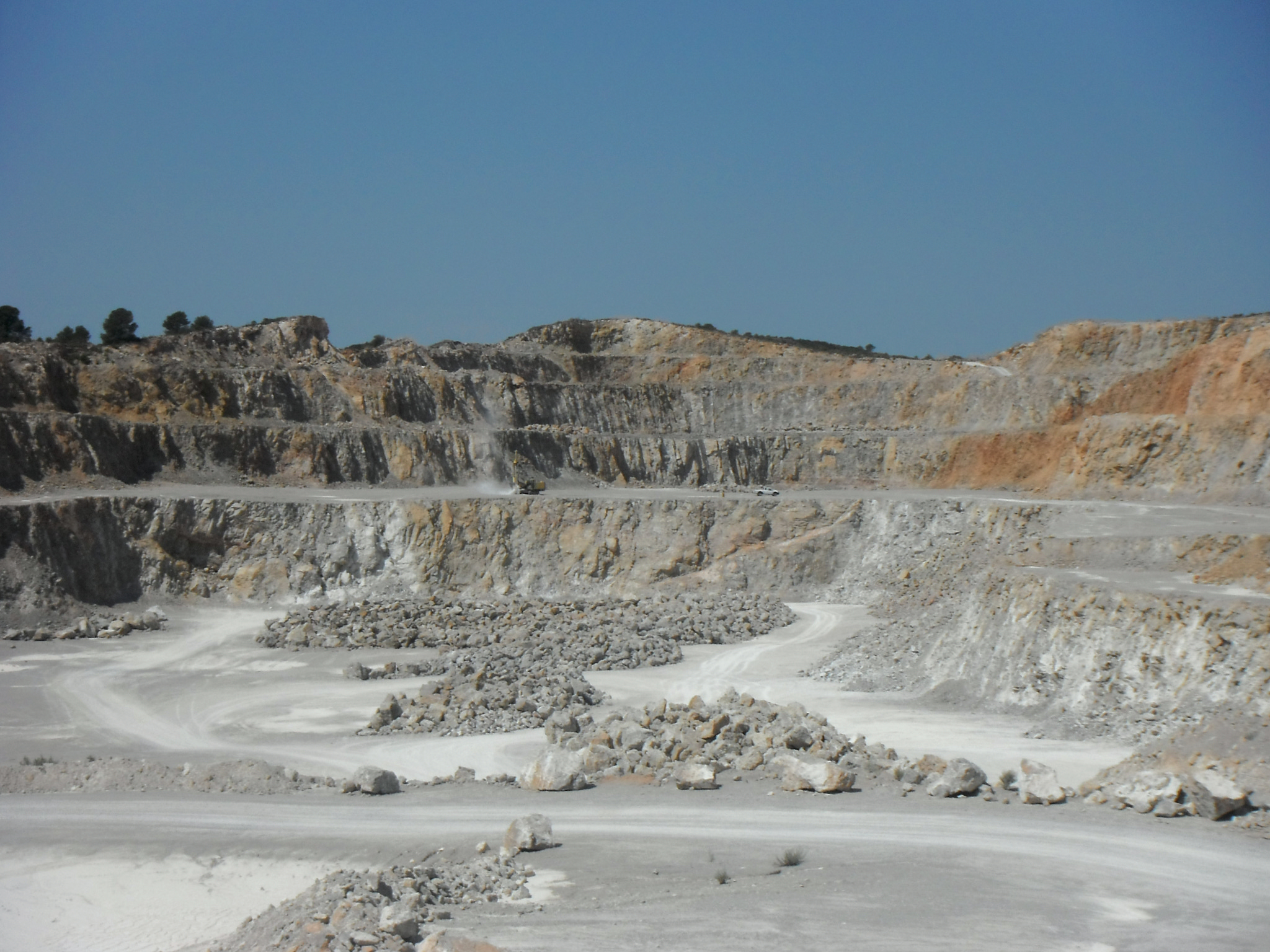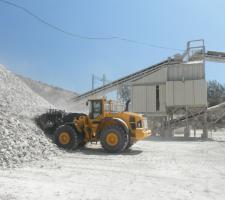
The quarry in Ribarroja del Turia, Spain, holds 30 million tonnes of limestone and spreads over some 16km
Some 60 million years ago prehistoric life roamed the Aristaria limestone quarry in Valencia on the east coast of Spain.
The enormous pit that has been there since the Jurassic period resembles a giant meteor crater hammered into the earth, and the sun beating down on white crystallised rock creates quite a surreal experience.
The quarry in Ribarroja del Turia holds 30 million tonnes of limestone, spreading over approximately 16km, and access roads circle around each layer of the quarry until they reach the top.
Limestone, made up of the shells and remains of ancient sea creatures crushed and fossilised over millions of years, is the ultimate in recycling. And there is a lot of this useful and versatile rock to be found in the Aristaria Quarry in Valencia.
The blocks of limestone weigh between four to five tonnes and make up 15-20% of production while smaller crushed rock, most of which is for concrete production, accounts for the remaining 80%.
The Aristaria company took over the quarry in 1991 and is one of the 25 companies owned by the aggregates giant, Cyes, which employs 1,400 workers across its quarrying network. So far this year, 500,000tonnes of limestone has been extracted but its production peak is 2 million tonnes every year.
The stone is used for supporting huge infrastructures including coastline ports and airports. Aristaria has won contracts to supply resources for Morocco’s Tangier Port build, which is one of the largest infrastructure projects ever undertaken in North Africa. It is set to become one of the biggest harbours in the region and the future deep-water port and associated free-trade zone will lend enthusiasm to the economy.
The company will also be supplying stone to Valencia’s northern port extension; Tenerife’s airport extension, and it has also been used to build the channelling of the El Carraixet ravine in Bétera, Valencia.
Aristaria uses three different series of
“After going from the L330E to the L350F I saw a revolutionary step at Volvo CE,” says Rafa Pardo, operator at the site. “It’s amazing how a more powerful machine can save us fuel: our L350F, bought in 2009, has 8,100 hours on the clock and still looks new. The development between these two machines is astonishing, and then the L250G comes along and is even better.”
The company previously owned a Volvo L180, which was 16 years old and had 36,000 hours on the clock and with the original Volvo bucket still intact. This machine was traded in for a newer Volvo, but even at the end it was still able to lift 7,000tonnes in ten working hours.
Pardo has been operating Volvo machines since 1989 and has worked at the quarry for 13 years.
With temperatures reaching up to 40-45oC in the height of summer, he says he is thankful for the cool cab conditions.
The company has worked with Volvo CE for more than 50 years and this is a relationship that “will continue well into the future”, says Arturo O’Neill De Tyrone, general manager of the company, who has 32 years of experience on the job site.
“I have known Volvo for many years now and I like the machines, I like our dealer and I like the service.”
Aristaria uses a drill and blast approach, after which the Volvo fleet transport the pieces and stockpile and load them as needed.
“Our operators like to use Volvo machines because they feel safe in them, and safety comes first,” adds Arturo.
Aristaria’s Volvo dealer for this region, Maquinaria y Recambios de Levante, covers a large area in Spain and strives to have branches and support teams close to its customers.
Manager of the dealership, Alejandro Garcia, who has worked with Volvo for more than 20 years, says: “Sustaining a long-term relationship with our customers is very important so that we can better understand their needs and provide them with the best solution. For Aristaria, quality, safety and fuel efficiency were key factors, so the new G-Series wheeled loader was a perfect fit.”









